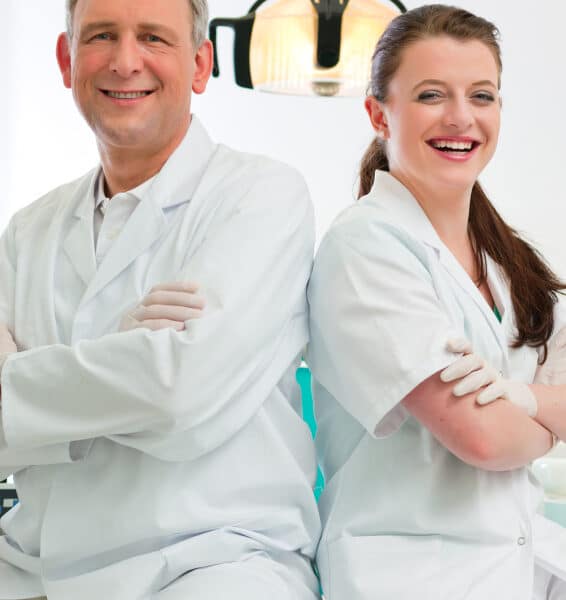 Do you feel as though you’ve got a lot of experience that you could share? Do you look around the team and see people making mistakes you made years ago? Do you talk to peers at meetings and end up giving advice?
Do you feel as though you’ve got a lot of experience that you could share? Do you look around the team and see people making mistakes you made years ago? Do you talk to peers at meetings and end up giving advice?
If you answered ‘Yes’ to any of these questions, then you might think about setting up a mentoring scheme within your practice or talking to other practices about joint schemes. There are lots of young practitioners, a year or so out of Vocational Training who still feel unsure about clinical and management issues. As associates, they come in and out of the practice like ghosts and formal engagement is difficult. However, given half a chance they are really wanting to learn more.
I have recently started a mentoring relationship with a colleague at work and we are finding tremendous benefits for both of us. On one hand, they (mentee) are achieving insight into their own practise. On the other hand, this is a chance for me (mentor) to reflect on my own practice as well as find satisfaction in helping someone else develop.
What is the role of a workplace mentor?
The workplace mentor helps individuals to take charge of their own development, to release their potential and achieve results which they value. A steep learning curve, change management and being open to changing views are central to the mentoring relationship. This relationship is built upon trust and rapport and is a way in which two, or several, people can get together in an open and honest professional relationship. In this relationship, the mentor becomes a trusted faithful guide for another and supports the mentee on their journey. This journey can be brief or can last over several months and could relate to career development – problems or opportunities, changes in the workplace and general professional issues.
What are the benefits of mentoring?
When taken as an activity involving the dental team it is important to consider the impact that mentoring could have upon the whole team, on patient care and their well-being and the success of the practice. After all, mentoring can have an impact upon the development of the dental team and the quality of care provided. It can also help to enhance professional skills and performance, providing opportunities for personal and professional growth, which in turn can lead to a much greater sense of job satisfaction and therefore authentic happiness through a mentoring culture. This applies to Mentor and Mentee!
Who can be a mentor?
Those undertaking the role of the mentor could either be a peer or a more senior member of the team. This is because mentoring can have two faces. Either that of the traditional mentor, whereby the mentor is usually more senior, more experienced and by virtue much older. Or, the contemporary mentor, which sees the mentee and mentor as equals and the mentee being skilful but in need of guidance.
There are proven advantages to starting a mentoring scheme and to date mentoring has played an important role in the following situations:
- Career pathways
- Multiple stress factors i.e. professional burnout, anxiety and low self-efficacy
- Under performance
- Team management and leadership
- Achievement and success
- Mediation
- Improvement of patient service
- Greater patient retention
This list is not exhaustive by any means, but provides an idea of how widely mentoring can be implemented.
What are the responsibilities of a mentor?
The main responsibility of the mentor is to provide the best possible service to the mentee, taking the stance of ‘most good, least harm’. There are of course very clear boundaries, which are aligned to professional mentoring. The position has to be one of support, not instruction and mentee focused, not problem focused. Mentoring can be formal, deliberate or gradual and informal, but comes with professional expectations and guidance. The European Mentoring and Coaching Council have developed a code of ethics which outlines best practice and ensures that a high standard of activity is maintained. The ethical code covers Competence, Context, Boundary Management, Integrity and Professionalism.
The whole mentoring relationship and experience should be based upon trust and integrity, whereby individuals can be open and honest – ‘congruent’, without repercussions or being judged. However, it should be made clear and recorded in the mentor/mentee agreement that if the body of the discussion crosses professional boundaries and or is likely to cause harm, the mentor has a duty to inform the relevant bodies. Mentoring, like many other interactions should consider confidentiality and this must be established very early on in the mentor/mentee relationship. There are also several structures for development which can form the framework for a scheme. I would recommend the GROW Model.
G.R.O.W is effective for willing and cooperative mentees and in conjunction with other mentoring models –
Goal setting – Establish the goal – This encourages the mentee’s to work towards and identify specific targets, milestones.
Reality – Examine reality – Often achieved by employing open (Socratic) questions and the use of reality testing.
Options – Consider the options – Achieved by using a range of mentoring skills: listening, applying open questions restating and searching for missed clues. Finally, on taking the decision option forward, as a leverage point to the next stage.
Will – Confirm the will to act – At this point the mentor encourages the mentee to act. The mentor is likely to ask the mentee to summarise what it is that they are willing to do. The mentor should at this point check that this is within the possibilities and or opportunities of the mentee.
There are all sorts of options for setting up a scheme. For example, I have used a model provided by ‘Heart Your Smile’, for whom I am grateful for the information used in this article. They will also match mentors/mentees if you are willing to become mentor to a stranger. It is also possible to set up your own scheme using the European Mentoring and Coaching Council guidelines. Whichever you choose, it’s advisable to create a formal agreement in order to avoid conflict at any stage, but with an open ended structure to avoid a feeling of being ‘trapped’.
I hope other people will rise to the challenge. Wear the T-shirt with pride!
Note:
- The European Mentoring and Coaching Council – www.emccouncil.org/uk
- Heart Your Smile – www.HeartYourSmile.co.uk





